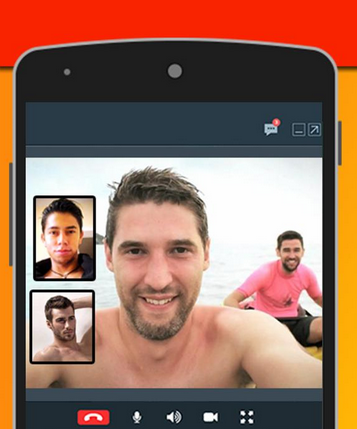How cybersex is better than real sex
Trigger warning: Explicit discussion of sexual acts, pornography, sex work, etc.
 Sex is one area in which most people still feel that the real thing is better than the virtual. Or at least that still seemed to be true when I wrote the original draft of this lesson. It's a litlle hard to understand what has happened to embodied sex among young people in the pandemic-postpandemic worlds of the 2020s. Like so many other forms of "social" interaction, it seems possible it has taken a hit from virtual substitutes.
Sex is one area in which most people still feel that the real thing is better than the virtual. Or at least that still seemed to be true when I wrote the original draft of this lesson. It's a litlle hard to understand what has happened to embodied sex among young people in the pandemic-postpandemic worlds of the 2020s. Like so many other forms of "social" interaction, it seems possible it has taken a hit from virtual substitutes.
But maybe there are actually some things to be said for electronically mediated eroticism and sexuality? In the 21st century, there have been many arguments for the positives, some of which are parallel to the other ideas about mediated socializing we have been looking at. Back in 2005, when taking your sex online was still relatively adventurous, Michael W. Ross went through several pluses of online eroticism, and even virtual sex, some of which you may never have considered. Let's start by looking at some of the positives of "virtual sex" discussed by Ross.
Ross started with the first and probably most compelling way that technology has arguably made sex easier: hooking up with someone for real embodied sex. The Internet has made it immensely easier to find compatible partners, whether they be consensual ones or hired sex workers, for both online encounters and real embodied sex. A cornucopia of platforms allow you access to hundreds more potential partners than any bar, club, party, or even escort service could, and let you swipe through these potential partners for the best complement to your own sexual profile. Once you've found someone, you can then use technology to safely explore your erotic potential with them before actually meeting them in the flesh - through texting, images, video chat, or even virtual avatar encounters of various kinds.
You might personally feel that your own current sexual proclivities are mainstream enough that you would not need the Internet to help you find a match, but imagine you are a lesbian living in a small town in Northern Ontario. Your local options for satisfying sexual encounters might be unclear or extremely limited.
As a member of another marginalized group now, I can also say that the older you get the harder it is to find compatible available partners of any kind without tools like we now have online. Once you leave school and people start coupling up, it can be more and more challenging to find relationships in the old fashioned ways. I personally have met a number of people through online dating, and found my last two (and longest lasting) partners that way. These weren't just for hookups, but you might be surprised to learn that there are actually lots of older women out there who are mainly looking for sex! I tend to think the two long-term relationships I found online both had more going for them (the second one is still going) than the relationships that arose organically earlier in my life. This might partly be age, but it also owes something to the unromantic platforms that allow you to refine your searches beyond the chance encounter. If you know who you are, what you want, and what you have to offer, and are willing to be honest about these things, I'm convinced that the Internet can generally find you a better match - romantic, erotic, sexual - than Fate or Chance.
Presumably some of you know more than I do about the convenience of purely sexual hookups. And if all one is looking for is sex, the Internet can apparently provide fast and affordable encounters online or effective methods of finding paid or voluntary real-world sex.
So now you've found someone. But what about actually being sexual over electronic media? Sexting, video chat, avatar sex, and remote sex using haptic devices?
Although mediated virtual sex using a computer, tablet, or phone may be much less physically engaging than live embodied sex, Ross proposed that these forms of satisfaction are at least less lonely than masturbation. Two lovers sexting each other to ecstasy, Skype video play when your partner is stuck overseas for a year, or even someone paying to watch a sex worker strip online while talking to her through chat - all of these are arguably more "social" and closer to real human interaction than solitary self-pleasuring to one's own fantasy or a canned porn video or VR environment product.
For some people, sex online, perhaps in a chatroom or virtual reality world like Second Life or through the use of technological add-ons, may be better than anything they are likely to experience in the real world. Those with social anxiety, some people who are physically disabled, those with extremely rare kinks, and various other people may be able to experience aspects of sexual intimacy, power, or pleasure virtually or through prostheses that they cannot experience easily or at all in real life.

"Cybersex," it has been argued, is something between pure fantasy and spontaneous action: more active and interactive than individual daydreaming, but in many cases actually also more imaginative than immediate bodily sex. This is another point to which we will return: that cybersex could be a more spiritual or creative or unhindered expression of one's sexuality than bodily sex sometimes is, as we saw can be the case for some people in gaming environments and virtual worlds. Some people like to quote the (cynical?) quip that sex is really just "fiction and friction." Sex online can give free rein to the "fiction" part and is getting better all the time at transmitting some "friction" too. More on this in a moment.
Chat rooms and VR environments let you try out sexual milieus or lurk in them and pick up the manners and so forth. I usually use the example here of the gay person in the small town again. Where is this person going to "learn the ropes" of being gay? There are books and films, of course, lots more all the time; but the ability to enter an online "gay bar," watch, listen and interact could be a powerful bonus in developing and becoming more comfortable in one's sexuality. Anyone whose sexuality exceeds the most pedestrian of heterosexual "normalcies" could benefit from the opportunities to explore their sexualities with like-minded people in a relatively safe and discreet online venue.
As a last bonus for the more adventurous individual, Ross points out how online sex can encourage the development of multiple sexual personalities. Following on from the previous point, the chance to experiment with sexual roles and scenarios in a comparatively risk-free environment may encourage all of us to "think outside of the box" and grow sexually (and generally) as human beings. As with the multiple social identities talked about in the previous lesson, some people may welcome and embrace the opportunity to be more than a single sexual stereotype and instead engage in multiple online experiments and renditions of their various sexualities. Things that might be much harder to so IRL.
Ross adds one final big bonus to the proliferation of sexuality online, one that is important to him as a sociologist and may seem a bit disturbing to the rest of us: online sexual activity could provide an unprecedented amount of data and a wealth of sexual "scripts" for sexologists to study and analyze in their attempts to comprehend the full and true nature of human sexuality! More recent studies point to the power of "Big Data" to give us a more nuanced, diverse, and honest picture of ourselves as sexual beings.